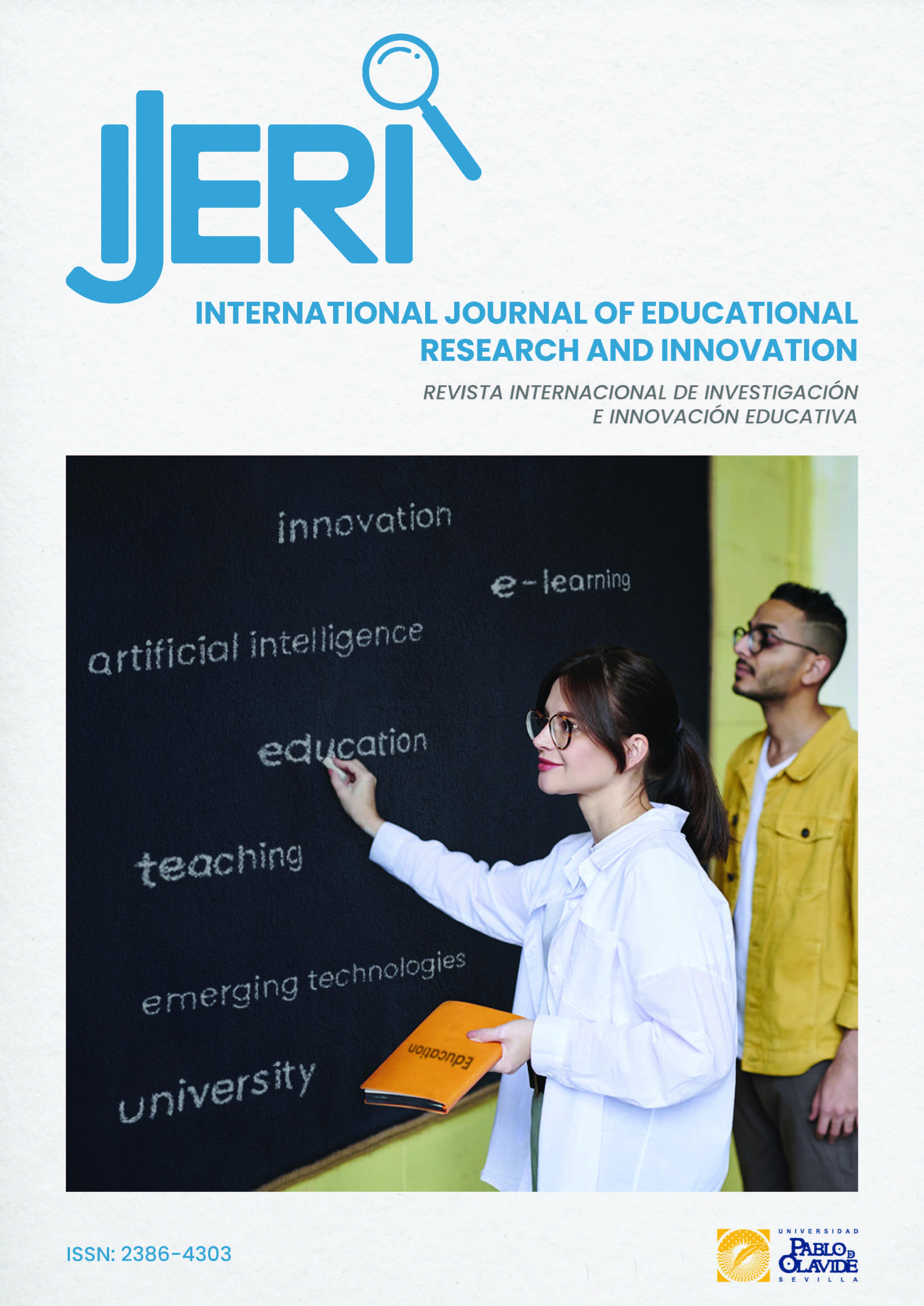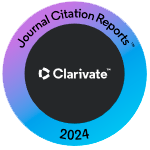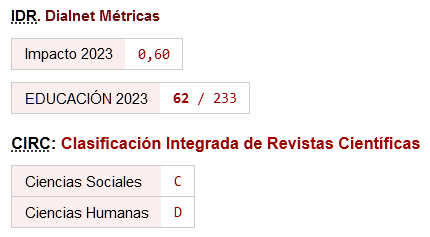Demographics and job satisfaction as predictors of mental well-being of Filipino teachers
A web-based survey two years after the onset of pandemic
DOI:
https://doi.org/10.46661/ijeri.8205Keywords:
Job satisfaction, mental health, Philippines, teachers, well-beingAbstract
Teachers worldwide have had to change how they work because of the COVID-19 health crisis. These work changes and pandemic challenges have affected teachers in one way or another. There is a need to investigate teachers' welfare and how contented they are with their jobs two years after the onset of the pandemic and nationwide lockdown. This study examined the factors predicting the subjective mental well-being of teachers in the Philippines. Using a cross-sectional study design, the survey responses of 218 Filipino teachers were analyzed. Data were gathered electronically using the demographic profile form, a short version of the Warwick–Edinburgh Mental Well-being Scale, and the Short Index of Job Satisfaction. Results indicated that the majority of teachers had average to high job satisfaction and average subjective mental well-being. Regression analysis revealed that the type of school employed, residence, and job satisfaction were significant predictors of the mental well-being of teachers. This study affirms that certain demographic variables and satisfaction at work exert a positive influence on the mental health of teachers. Continuously making improvements in the working conditions of teachers and devising ways to enhance their well-being are vital.
Downloads
References
Agyapong, B., Obuobi-Donkor, G., Burback, L., & Wei, Y. (2022). Stress, burnout, anxiety and depression among teachers: A scoping review. International Journal of Environmental Research and Public Health, 19(17):10706. ttps://doi.org/10.3390/ijerph191710706
Alcañiz, M., Riera-Prunera, M. C., & Solé-Auró, A. (2020). "When I retire, I'll move out of the city": Mental well-being of the elderly in rural vs. urban settings. International Journal of Environmental Research and Public Health, 17(7), 2442. https://doi.org/10.3390/ijerph17072442
Aliakbari, A. (2015). The impact of job satisfaction on teachers' mental health: A case study of the teachers of Iranian Mazandaran province. World Scientific News, 12, 1-11.
Annamalai, N. (2021). Online learning during COVID-19 Pandemic. Are Malaysian high school students ready?. Pertanika Journal of Social Sciences & Humanities, 29(3), 1571-1590. https://doi.org/10.47836/pjssh.29.3.06
Atencio, E. S. (2019). Level of job satisfaction of faculty members in the University of Eastern Philippines. SSRG International Journal of Economics and Management Studies, 6(1),103-110. https://doi.org/10.14445/23939125/IJEMS-V6I1P111
Campo‐Arias, A., Jiménez‐Villamizar, M. P., & Caballero‐Domínguez, C. C. (2021). Healthcare workers' distress and perceived discrimination related to COVID‐19 in Colombia. Nursing & Health Sciences, 23(3), 763-767. https://doi.org/10.1111/nhs.12854
Cao, X., Zhang, H., Li, P., & Huang, X. (2022). The influence of mental health on job satisfaction: Mediating effect of psychological capital and social capital. Frontiers in Public Health, 10 (8). https://doi.org/10.3389/fpubh.2022.797274
Capone, V., & Petrillo, G. (2020). Mental health in teachers: Relationships with job satisfaction, efficacy beliefs, burnout and depression. Current Psychology: A Journal for Diverse Perspectives on Diverse Psychological Issues, 39(5), 1757-1766. https://doi.org/10.1007/s12144-018-9878-7
Cleofas, J. V. (2022). The urban-rural divide and depression during COVID-19 pandemic among Filipino emerging adults. Journal of Loss and Trauma, 27(8), 790-791. https://doi.org/10.1080/15325024.2022.2028086
Cleofas, J. V., & Oducado, R. M. F. (2021). COVID-19 death occurrences, pandemic fatigue and well-being. Journal of Loss and Trauma, 27(7), 679-682. https://doi.org/10.1080/15325024.2021.1971423
David, C. C., Albert, J. R. G., & Vizmanos, J. F. V. (2019). Pressures on public school teachers and implications on quality. Philippine Institute of Development Studies Policy Notes, 1, 1-6.
Egcas, R. A., Oducado, R. M. F., Visperas, J., Cleofas, J. S. R., & Lausa, S. M. (2021). After over a year of pandemic: Mental well-being and life satisfaction of Filipino college students. Pertanika Journal of Social Sciences & Humanities, 29(4), 2401-2416. https://doi.org/10.47836/pjssh.29.4.17
Ellyatt, H. (2022). Last responders: Mental health damage from Covid could last a generation, professionals say. https://www.cnbc.com/2022/02/10/covid-pandemic-mental-health-damage-could-last-a-generation.html
Flores, J., Caqueo-Urízar, A., Escobar, M., & Irarrázaval, M. (2022). Well-being and mental health in teachers: The life impact of COVID-19. International Journal of Environmental Research and Public Health, 19(22), 15371. https://doi.org/10.3390/ijerph192215371
Gajda, A., Korzeniowska, A., & Matczak, A. (2021). The COVID-19 pandemic: The impact on education in Poland. European Journal of Education, 56(1), 177-189. https://doi.org/10.1111/ejed.12420
García, E., & Weiss, E. (2019). The teacher shortage is real, large and growing, and worse than we thought. Economic Policy Institute. https://www.epi.org/publication/the-teacher-shortage-is-real-large-and-growing-and-worse-than-we-thought-the-first-report-in-the-perfect-storm-in-the-teacher-labor-market-series/
Gillani, A., Dierst-Davies, R., Lee, S., Robin, L., Li, J., Glover-Kudon, R., Baker, K., & Whitton, A. (2022). Teachers' dissatisfaction during the COVID-19 pandemic: Factors contributing to a desire to leave the profession. Frontiers in Psychology, 13, 940718. https://doi.org/10.3389/fpsyg.2022.940718
Glaveli, N., Manolitzas, P., Tsourou, E., & Grigoroudis, E. (2023). Unlocking teacher job satisfaction during the COVID-19 pandemic: A multi-criteria satisfaction analysis. Journal of the Knowledge Economy, 1-22. https://doi.org/10.1007/s13132-023-01124-z
Gomez, D. (2022). Stress is pushing many teachers out of the profession. https://www.forbes.com/sites/forbescoachescouncil/2022/02/23/stress-is-pushing-many-teachers-out-of-the-profession/
Gross, A. J., Murthy, D., & Varshney, L. R. (2017). Pace of life in cities and the emergence of town tweeters. SAGE Open, 7(4). https://doi.org/10.1177/2158244017745113
Gumarang, B.K. (2021). Private school teachers' voice in the Philippines amidst COVID-19 pandemic: A descriptive phenomenological study. International Research Journal of Science, Technology, Education, and Management, 1(2), 170-183. https://doi.org/10.5281/zenodo.5726586
Hidalgo-Andrade, P., Hermosa-Bosano, C., & Paz, C. (2021). Teachers' mental health and self-reported coping strategies during the COVID-19 pandemic in Ecuador: A mixed-methods study. Psychology Research and Behavior Management, 14, 933-944. https://doi.org/10.2147/PRBM.S314844
Hoque, K. E., Wang, X., Qi, Y., & Norzan, N. (2023). The factors associated with teachers' job satisfaction and their impacts on students' achievement: A review (2010–2021). Humanities and Social Sciences Communications, 10(1), 1-7. https://doi.org/10.1057/s41599-023-01645-7
Hussain, S., Saba, N. U., Ali, Z., Hussain, H., Hussain, A., & Khan, A. (2022). Job satisfaction as a predictor of well-being among secondary school teachers. SAGE Open, 12(4), 21582440221138726. https://doi.org/10.1177/21582440221138726
Kim, L., Oxley, L., & Asbury, K. (2022). "My brain feels like a browser with 100 tabs open": A longitudinal study of teachers' mental health and well‐being during the COVID‐19 pandemic. British Journal of Educational Psychology, 92(1), 299-318. https://doi.org/10.1111/bjep.12450
Kotowski, S. E., Davis, K. G., & Barratt, C. L. (2022). Teachers feeling the burden of COVID-19: Impact on well-being, stress, and burnout. Work, 71(2), 407-415. https://doi.org/110.3233/WOR-210994
Kuwato, M., & Hirano, Y. (2020). Sense of coherence, occupational stressors, and mental health among Japanese high school teachers in Nagasaki prefecture: A multiple regression analysis. BMC Public Health, 20, 1-8. https://doi.org/10.1186/s12889-020-09475-x
Lau, S. S. S., Shum, E. N. Y., Man, J. O. T., Cheung, E. T. H., Amoah, P. A., Leung, A. Y. M., Okan, O., & Dadaczynski, K. (2022). Teachers' well-being and associated factors during the COVID-19 Pandemic: A cross-sectional study in Hong Kong, China. International Journal of Environmental Research and Public Health, 19(22), 14661. https://doi.org/10.3390/ijerph192214661
Leech, N. L., Haug, C. A., Rodriguez, E., & Gold, M. (2022). Why teachers remain teaching in rural districts: Listening to the voices from the field. Rural Educator, 43(3), 1-9. https://doi.org/10.55533/2643-9662.1340
Lin, M., Park, C., Li, X., Majumder, S., & Aktas, G. (2021). The impact of COVID-19 pandemic on teacher well-being: A cross-sectional study. Journal of Affective Disorders, 280, 380-385. https://doi.org/10.1016/j.jad.2020.12.058
Lulli, L. G., Inguglia, C., & Lo Coco, A. (2021). Teaching under COVID-19 and teacher well-being: A diary study on the role of emotion regulation strategies. Journal of Happiness Studies, 22(1), 125-143. https://doi.org/10.1007/s10902-020-00285-2
Madigan, D. J., & Kim, L. E. (2021). Does teacher burnout affect students? A systematic review of its association with academic achievement and student-reported outcomes. International Journal of Educational Research, 105, 101714. https://doi.org/10.1016/j.ijer.2020.101714
Min, S., Jeong, Y. H., Kim, J., Koo, J. W., & Ahn, Y. M. (2021). The aftermath: Post-pandemic psychiatric implications of the COVID-19 pandemic, a South Korean perspective. Frontiers in Psychiatry, 12, 671722. https://doi.org/10.3389/fpsyt.2021.671722
NHS Health Scotland, University of Warwick, and University of Edinburgh. (2008). Short Warwick Edinburgh mental well-being scale (SWEMWBS). https://www.corc.uk.net/media/1245/swemwbs_childreported.pdf
Oducado, R. M. F, Rabacal, J. S., & Tamdang, K. A. (2021). Perceived stress due to COVID-19 pandemic among employed professional teachers. International Journal of Educational Research and Innovation, 15, 305-316. https://doi.org/10.46661/ijeri.5284
Organization for Economic Cooperation and Development. (2022). Teacher working conditions. https://gpseducation.oecd.org/revieweducationpolicies/#!node=41734&filter=all
Ortan, F., Simut, C., & Simut, R. (2021). Self-efficacy, job satisfaction and teacher well-being in the K-12 educational system. International Journal of Environmental Research and Public Health, 18(23), 12763. https://doi.org/10.3390/ijerph182312763
Ozamiz-Etxebarria, N., Berasategi Santxo, N., Idoiaga Mondragon, N., & Dosil Santamaría, M. (2021). The psychological state of teachers during the COVID-19 crisis: The challenge of returning to face-to-face teaching. Frontiers in Psychology, 11, 620718. https://doi.org/10.3389/fpsyg.2020.620718
Pilarta, M. A. B. (2015). Job satisfaction and teachers performance in Abra state institute of sciences and technology. Global Journal of Management and Business Research, 15(A4), 81-85.
Rabacal, J. S., Oducado, R. M. F., & Tamdang, K. A. (2020). COVID-19 impact on the quality of life of teachers: A cross-sectional study. Asian Journal for Public Opinion Research, 8(4), 478-492. https://doi.org/10.15206/ajpor.2020.8.4.478
Reiss, F., Meyrose, A. K., Otto, C., Lampert, T., Klasen, F., & Ravens-Sieberer, U. (2019). Socioeconomic status, stressful life situations and mental health problems in children and adolescents: Results of the German BELLA cohort-study. PloS one, 14(3), e0213700. https://doi.org/10.1371/journal.pone.0213700
Rivera, K. C. (2022). " My job as a teacher literally never stops": How Filipino women teachers coped during the Covid-19 pandemic. Issues in Educational Research, 32(4), 1584-1604.
Robinson, L. E., Valido, A., Drescher, A., Woolweaver, A. B., Espelage, D. L., LoMurray, S., ... & Dailey, M. M. (2023). Teachers, stress, and the COVID-19 pandemic: A qualitative analysis. School Mental Health, 15(1), 78-89. https://doi.org/10.1007/s12310-022-09533-2
Rogayan, D. V. (2018). Why young Filipino teachers teach?. Asia Pacific Higher Education Research Journal, 5(2), 48-60.
Sapar, L. C., & Oducado, R. M. F. (2021). Revisiting job satisfaction and intention to stay: A cross-sectional study among hospital nurses in the Philippines. Nurse Media Journal of Nursing, 11(2), 133-143. https://doi.org/10.14710/nmjn.v11i2.36557
Seid, M. A., & Hussen, M. S. (2018). Knowledge and attitude towards antimicrobial resistance among final year undergraduate paramedical students at University of Gondar, Ethiopia. BMC Infectious Diseases, 18, 312. https://doi.org/10.1186/s12879-018-3199-1
Southeast Asian Ministers of Education Organization Regional Center for Educational Innovation and Technology. (2021). Exploring teachers' whys: Understanding motivation among teachers in the Philippines, 1-8.
Sigursteinsdottir, H., & Rafnsdottir, G. L. (2022). The well-being of primary school teachers during COVID-19. International Journal of Environmental Research and Public Health, 19(18), 11177. https://doi.org/10.3390/ijerph191811177
Sinval, J., & Marôco, J. (2020). Short index of job satisfaction: Validity evidence from Portugal and Brazil. PLoS One, 15(4), e0231474. https://doi.org/10.1371/journal.pone.0231474
Stang-Rabrig, J., Brüggemann, T., Lorenz, R., & McElvany, N. (2022). Teachers' occupational well-being during the COVID-19 pandemic: The role of resources and demands. Teaching and Teacher Education, 117, 103803. https://doi.org/10.1016/j.tate.2022.103803
Sudibjo, N., & Manihuruk, A. M. (2022). How do happiness at work and perceived organizational support affect teachers' mental health through job satisfaction during the COVID-19 pandemic?. Psychology Research and Behavior Management, 15, 939-951. https://doi.org/10.2147/PRBM.S361881
Tadle, R. L. (2022). Why are salaries of private school teachers so low, and what should be done? https://www.rappler.com/voices/thought-leaders/opinion-why-salaries-private-school-teachers-so-low-what-should-be-done/
Tang, Y. (2018). What makes rural teachers happy? An investigation on the subjective well-being (SWB) of Chinese rural teachers. International Journal of Educational Development, 62, 192-200. https://doi.org/10.1016/j.ijedudev.2018.05.001
Toropova, A., Myrberg, E., & Johansson, S. (2021). Teacher job satisfaction: The importance of school working conditions and teacher characteristics. Educational Review, 73(1), 71-97. https://doi.org/10.1080/00131911.2019.1705247
UNICEF Philippines. (2020). UNICEF Philippines statement on COVID-19. https://www.unicef.org/philippines/press-releases/unicef-philippines-statement-covid-19
Vargas-Rubilar, N., & Oros, L. B. (2021). Stress and burnout in teachers during times of pandemic. Frontiers in Psychology, 12. https://doi.org/10.3389/fpsyg.2021.756007
Wettstein, A., Schneider, S., Grosse Holtforth, M., & La Marca, R. (2021). Teacher stress: A psychobiological approach to stressful interactions in the classroom. Frontiers in Education, 6. https://doi.org/10.3389/feduc.2021.681258
Wischlitzki, E., Amler, N., Hiller, J., & Drexler, H. (2020). Psychosocial risk management in the teaching profession: A systematic review. Safety and Health at Work, 11(4), 385-396. https://doi.org/10.1016/j.shaw.2020.09.007
Downloads
Published
How to Cite
Issue
Section
License
Copyright (c) 2024 Ryan Michael Oducado, Mary Kristine Amboy, Baby Rose Robles, Daisy Rosano, Hilda Montaño, Dolly Rose Temelo, Ayesha Penuela, Arlyn Salistre, Liza Marie Ramirez, Khen Tamdang

This work is licensed under a Creative Commons Attribution-NonCommercial-NoDerivatives 4.0 International License.












